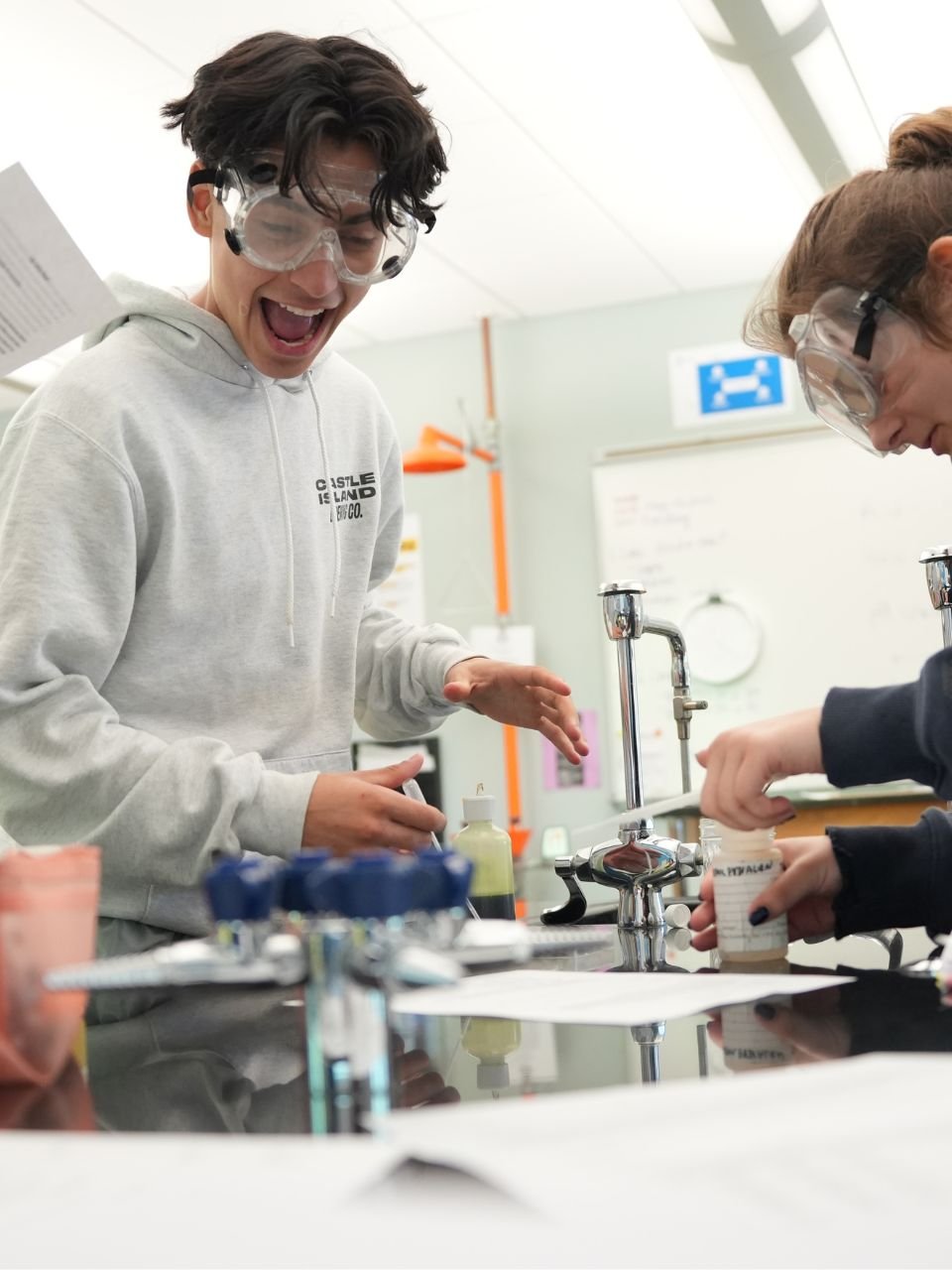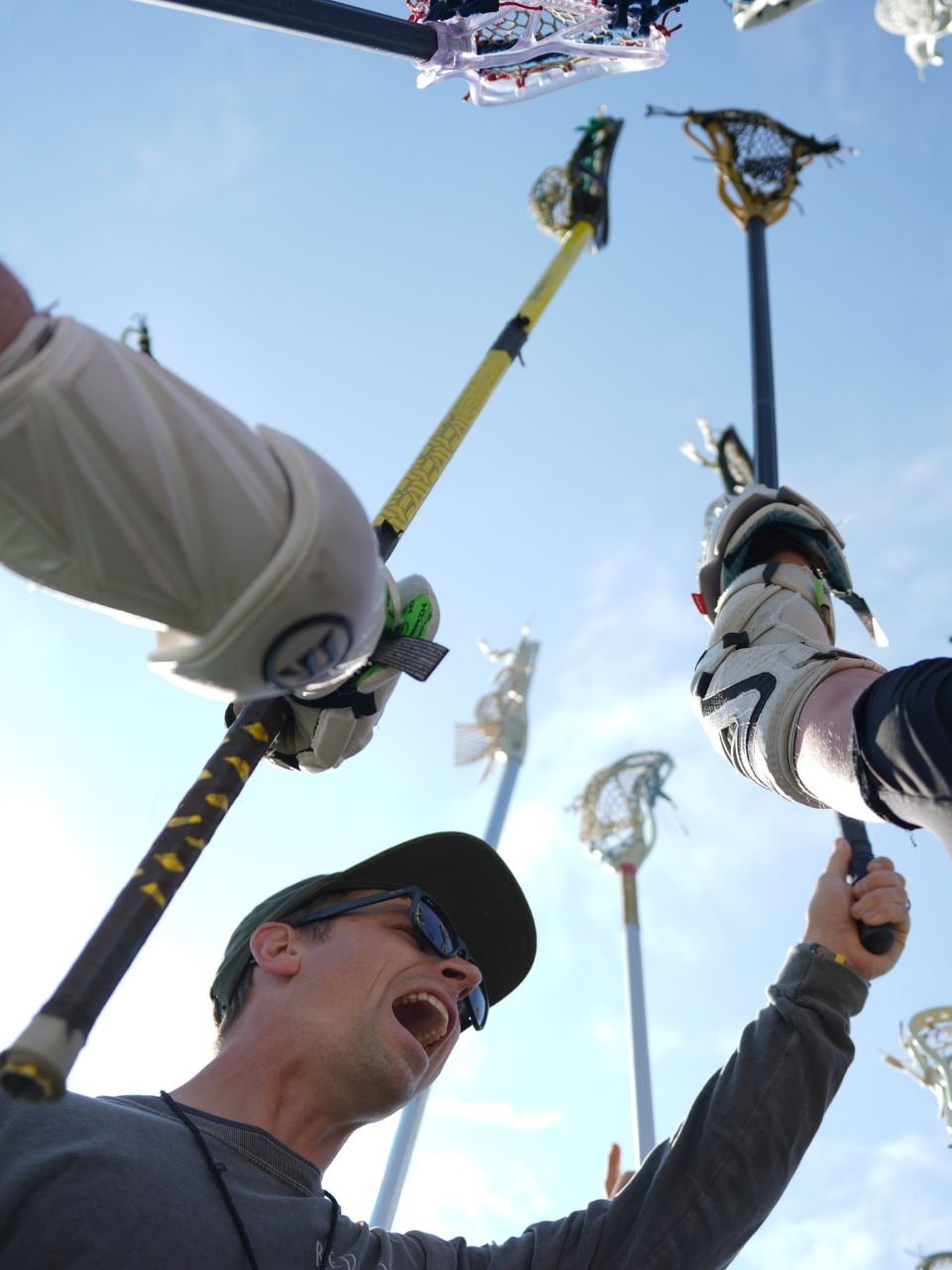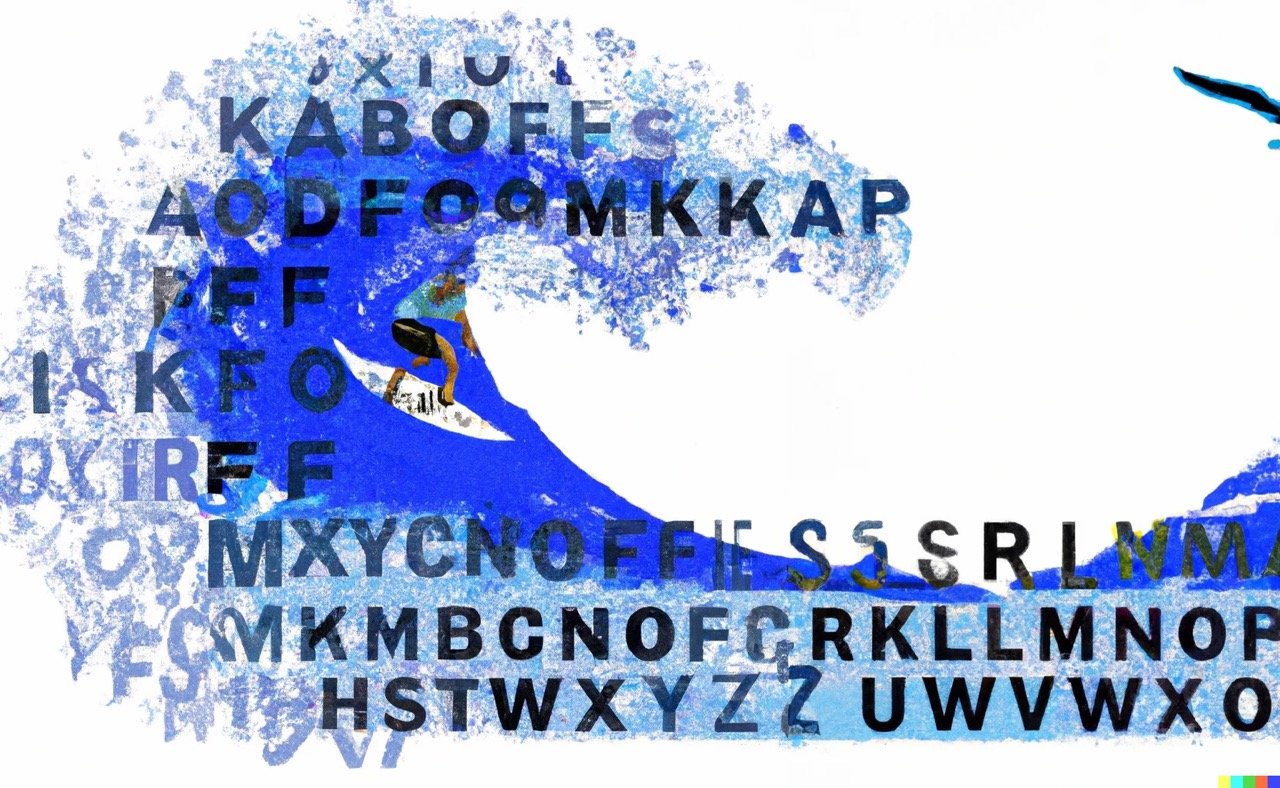- Our School
- Our Advantage
- Admission
- Elementary•Middle School
- High School
- Summer
- Giving
- Parent Resources
- For Educators
- Alumni
« Back
An AI Tsunami is Coming for Education
An AI Tsunami is Coming for Education & Dyslexia can Surf: PART 2
June 13th, 2023
An AI Tsunami is Coming for Education
& Dyslexia can Surf
Part 2
By Josh Clark
This article is part 2 in a series from Josh Clark on Generative AI as it intersects with education. This article was written on April 23, 2023.
Part 1 gives an intro to what generative AI is and how quickly it is developing. This second part talks about the impact on education, particularly for students with learning disabilities.
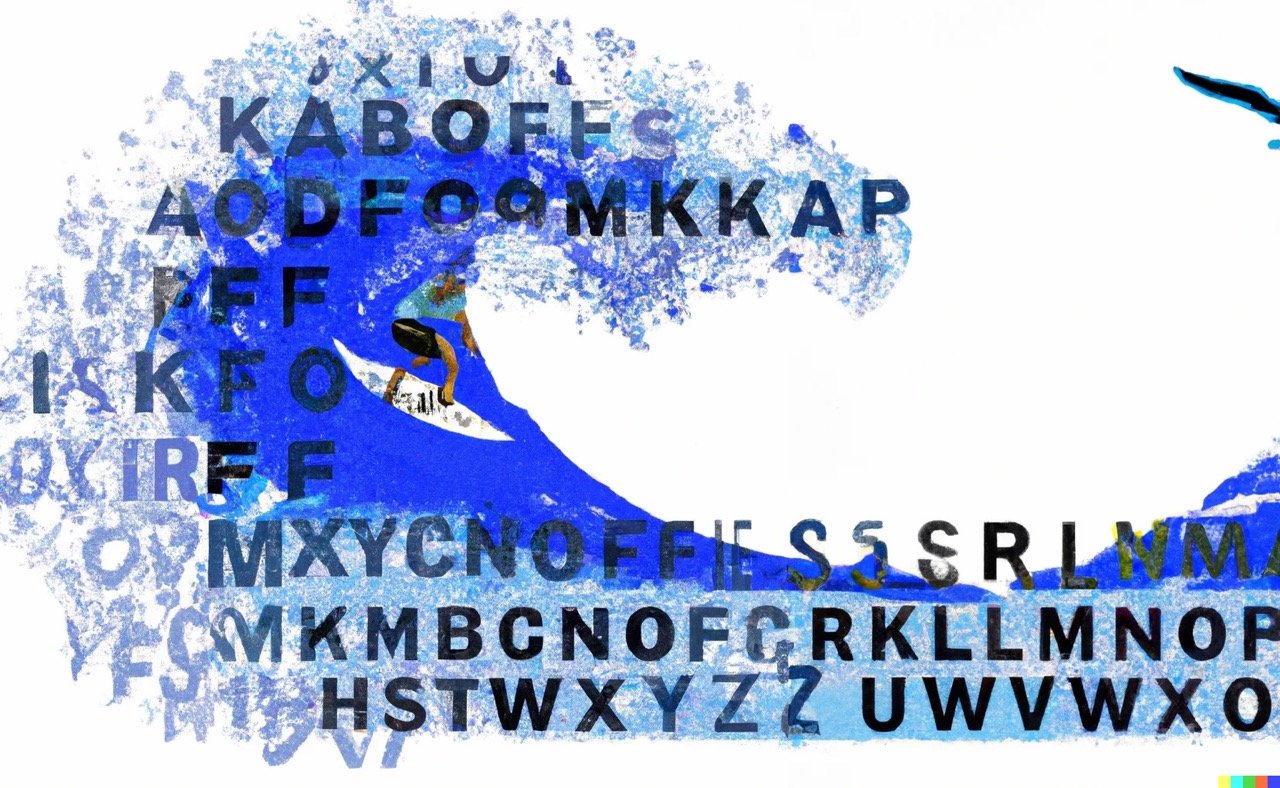
Image generated by DALL-E
Won’t Students just use ChatbotGPT to Cheat?
Yes, but only if we continue to assess students in the same outdated ways. The Siena School produced a fantastic webinar on this topic. Soon ChatbotGPT will be as expected and ubiquitous as spell check. Spell check empowers poor spellers by preventing their difficulties from impacting their ability to effectively communicate. In the near-term the same will be true for individuals who have difficulty organizing their ideas through written expression. Everyone will become an effective writer.
AI Could (SHOULD) Change the Ways We Measure Potential
ChatbotGPT 4 can outperform the vast majority of people on some of our most consequential standardized exams. It scored 700/800 on the SAT Math section, in the top 10% of the bar exam, in the 85% percentile of the LSAT and a 4 and 5 on the AP Calculus and AP Biology Exams. It even aced the Sommelier exam. Interestingly, it did not fare as well on the AP language exams which require higher levels of creativity and interpretation.
In a world where a computer can outperform the vast majority of humans on these exams, how can they possibly be an accurate prediction of who will be successful? In fact, they would seem to only predict who has the skills that can be better performed by computers. Dyslexic learners stand to be the beneficiaries of this shift in what is important and how we measure it.
Further, any school that continues to build its curriculum, instruction and culture around these measures will soon find themselves preparing students for an anachronistic world.
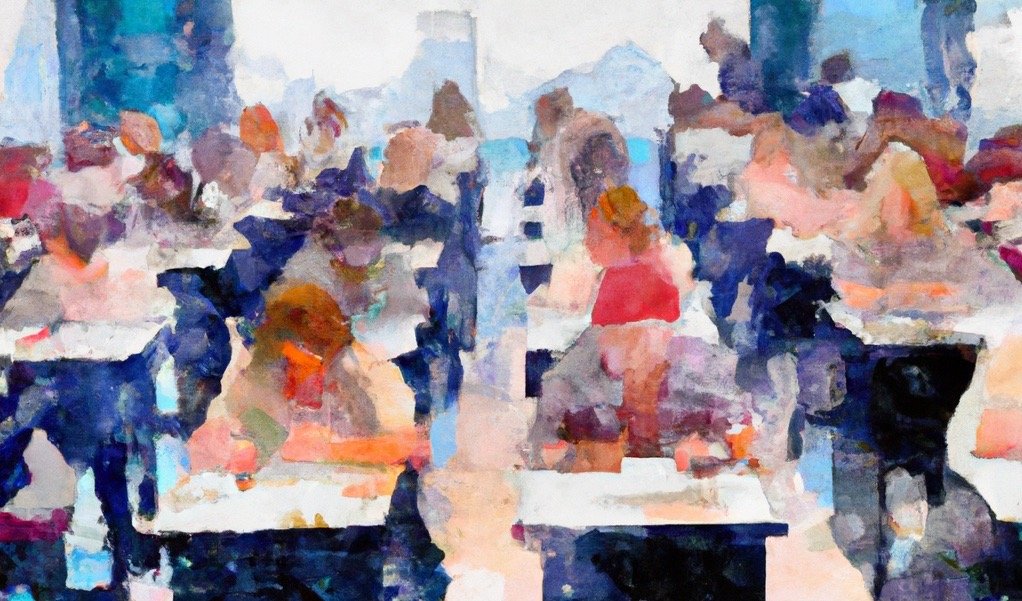
Image generated by DALL-E
AI will Change Instruction
AI is likely to have enormous impacts on instruction, especially in schools that serve students with dyslexia. I believe this transformation will begin by giving teachers back time through content generation before eventually changing the role and skill set of the entire profession.
AI can already generate word lists, controlled texts, and adequate lesson plans. It can produce lists of real and nonsense words with certain features — vowel teams, syllable types, spelling patterns, prefixes, etc. — and then incorporate the words into a text about any topic of your choosing. Imagine being able to provide every student with individualized, decodable passages of varying levels of syntactic complexities about basketball, space, race cars, Pokemon, or whatever other topic they find interesting. And generating it all in seconds not hours and days.
Khan Academy is already experimenting with AI-powered personal online tutors. With access to hundreds of thousands of examples of students’ work, AI will learn from student errors and predict and introduce the most efficient interventions. In the near-term, imagine AI reviewing students’ writing samples and providing feedback in real-time. Further, imagine students writing in response to a differentiated text about a subject they find interesting and getting instant feedback and opportunity to improve. Might we discover that for some students who struggle with writing and comprehension it is partially because we ask them to read and write about subjects for which they have no background knowledge or interest?
The possibilities and consequences cascade from there. With enough data to inform and refine its predictions, it is highly likely AI will soon be able to teach dyslexic students to read. Through the instant individualization of subject matter, complexity, and word choice, combined with an arsenal of error analysis and real-time response to student work, AI will be able to predict what kinds and the amount of exposures students need to advance. Further, with the advances in video and audio-based AI, students could choose to have Spider Man as their Language Arts teacher on Monday and Cinderella on Tuesday. AI does not need to become an OG Fellow, Wilson Certified, or a LindamoodBell tutor; it just needs access to sufficient data and a measurable goal.
Soon, technology may provide every student the individualized, explicit, structured, sequential instruction and expertise that is presently only available to a privileged few. It will also mean that the cost and time of training teachers will diminish exponentially. A 30 to 1 student to teacher ratio might finally make sense when every student is given an individualized, responsive curriculum.
This may be an appalling notion to many. How could any child learn more from a computer than a human being? Teachers and personal relationships will continue to play a vital role. Integrating multi-sensory practices, building authentic relationships, designing ways for students to practice collaboration and group problem-solving, and managing endless online distractions will become the focus of teachers’ time and purpose rather than charging through a standardized curriculum built for all but appropriate for none.
Further, in a world where over 50% of all American 4th graders are reading below grade level, what is it we are so afraid of losing?
AI will Change Schools
The dramatic changes in how schools think about and deliver instruction will be mirrored in how they operate. In a world where all curriculum is individualized, schedules can be built around collaboration and growing social skills rather than only content and ability. Calendars could change as the rate at which students display mastery will determine their advancement more so than the traditional school year. Where learning occurs can also change when the pedagogy and expertise is housed in the cloud and not the classroom.
Grading, IEP’s, student reports and other time-consuming paperwork will be automated and more individualized than ever before. When an administrator wants an update on a student’s progress, AI will simply scan and analyze every assignment, grade, note, report and email about the child and provide a real-time summary.
With fewer, differently trained teachers able to create better results for more students along with many administrative tasks now automated, the cost of education might finally decline.
Read all parts of this series An AI Tsunami is Coming for Education & Dyslexia can Surf:

About the Author
Josh Clark is the Head of Landmark School and Chair of the International Dyslexia Association. Before joining Landmark School, Josh had already begun to make a name for himself as a champion of struggling learners. He was the head of two other schools that empowered struggling dyslexic learners. He is also an expert contributor to the global nonprofit Made by Dyslexia and Microsoft Education. As a brilliant dyslexic himself, Josh is a life-long learner and problem-solver.
Join Josh for an EdChat
Virtual community discussions delving into the intersection of artificial intelligence, education, and learning disabilities.
Posted in the category Learning.








